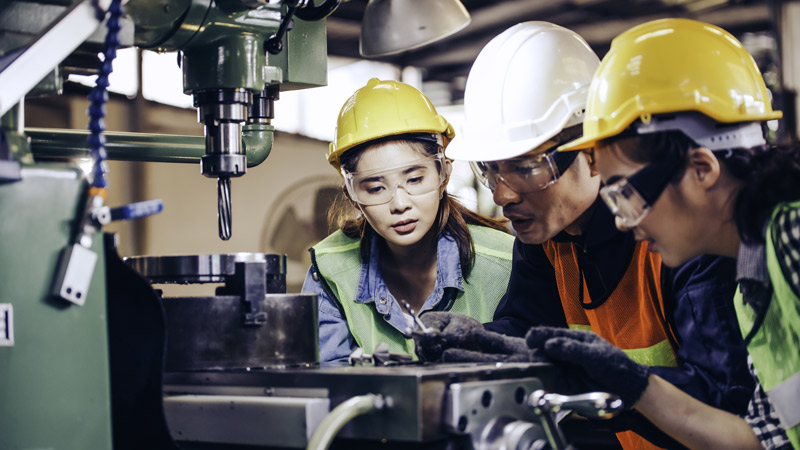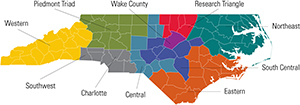Manufacturing is the backbone of this country. From Carnegie and his steel to the production of furniture, textiles and cars, the revolution of non-perishable foods, our phones, laptops and the equipment that supports that infrastructure, there is very little in our lives that manufacturing doesn’t touch. American manufacturing’s demise has been often predicted but could not be further from the truth. These days, we see incredible advances in manufacturing: textiles and clothing that can provide information on the wearer’s condition and performance – very important for our military and athletes. Sensors in our houses can help us predict what we need to adjust, what we need to repair, what we need to buy. Incredible advances in electric cars, making the reality of them sooner than later. It seems like something from the Jetsons, but the future is now.
We make many, many things in this country. Not everything produced is as flashy or easily identifiable as a car or an appliance. It could be a zipper, a fastening, a nail or screw, but it is just as important to the assembly of the finished product. These items are made by small manufacturers in every state who are proud of the work they do even if their product is not acknowledged. And sometimes, these small manufacturers don’t know where their products end up. There are stories of how manufacturers have been contacted because their product was used in a federal program and needed to be audited. Turns out one particular item had been used on a space shuttle, and the manufacturer had no idea. Manufacturing is also critical for our defense infrastructure. We need to know who makes the items and weapons our forces are using. It is a national security issue.
The last 18 months has taught us that manufacturing is incredibly important. We needed manufacturers to help us make face masks, ventilators, hand sanitizer and other PPE, and our manufacturers rose to the challenge. They responded quickly and reached out to organizations that could help them obtain the information and materials they needed to produce what the nation needed. And they succeeded. But it also taught us a valuable lesson: we need to make sure we invest in our manufacturing base and keep it strong. We need to make sure that we have local supply chains that know how to produce crucial products when – god forbid – another pandemic or natural disaster arises. We have learned that we need local supply chains in this country. We need to keep this ability and know-how here, to serve our citizens.
That is why the Buy American Order is so critical. It will support domestic manufacturing by mandating agencies buy more American-made products first. As well, it will require agencies to try to identify American companies via supplier scouting that can fulfill needs before looking to other sources.
We need our manufacturers more than ever. And manufacturing has evolved. It is advanced and full of automation, robotics, sensors and other technologies we cannot even comprehend. It is full of good, technical job opportunities for our children and gives back to the community in economic impact. Manufacturing contributes around 11% to the national GDP and employs over 12 million people. It remains a significant employer, and the technological advancements are making the industry more productive, innovative and competitive on the world stage.
That is why we celebrate Manufacturing Day on October 1, 2021. On this day, thousands of manufacturers across the nation will open their facilities to students, teachers, parents and neighbors to highlight what they do and change perceptions about what manufacturing is. If you can, please visit a manufacturer. It will be interesting, enlightening and hopefully perception-changing.



